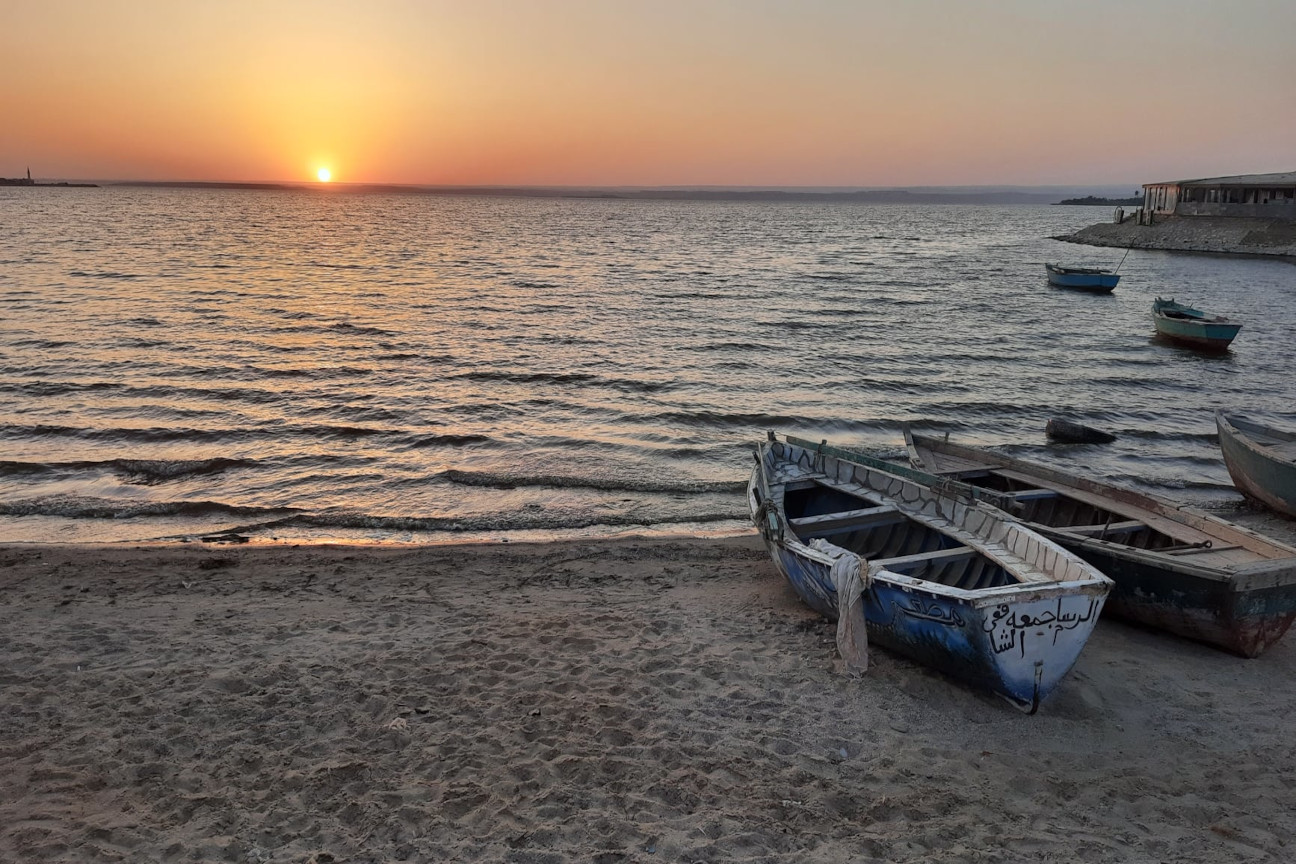Nestled within the Fayoum Depression in Egypt, Qarun Lake—also known as Birket Qarun—is one of the oldest natural lakes in the world.


Post Introduction
Nestled within the Fayoum Depression in Egypt, Qarun Lake—also known as Birket Qarun—is one of the oldest natural lakes in the world.
Post Content
Nestled within the Fayoum Depression in Egypt, Qarun Lake—also known as Birket Qarun—is one of the oldest natural lakes in the world. A key attraction in the Fayoum Governorate, this saltwater lake combines ecological significance, historical legacy, and stunning natural beauty. As part of the Wadi El Rayan Protected Area, Qarun Lake offers a rare mix of biodiversity and archaeological relevance, making it a must-visit destination for travelers and nature enthusiasts alike.
🔹 You can Learn How To Write your name in Hieroglyphics
Qarun Lake was once known as Lake Moeris during ancient Egyptian times. It played a pivotal role in irrigation systems and served as a reservoir supporting nearby settlements, especially during the Middle Kingdom.
The lake’s modern name comes from the legendary figure Qarun, mentioned in the Quran and Biblical texts. Qarun was known for his immense wealth, arrogance, and eventual downfall—making the lake symbolic in religious and moral narratives.
🔹 You can have some informathion About : Dahab Egypt
Located about 80 km southwest of Cairo, Qarun Lake spans over 214 square kilometers. Despite its proximity to the desert, it is a natural depression that receives drainage from surrounding agricultural areas.
The lake is framed by limestone cliffs, fossilized hills, and sandy dunes. The northern side offers archaeological interest, while the southern shore is known for its panoramic views and peaceful atmosphere.
Qarun Lake is one of Egypt’s top birdwatching destinations. During the winter months, thousands of migratory birds—including flamingos, grey herons, spoonbills, and white pelicans—flock to its shores.
Although salinity has increased, the lake still supports some species of tilapia and catfish. Surrounding areas are home to desert foxes, lizards, and rare plant species, making the site ecologically diverse.
Visitors to Qarun Lake can enjoy:
The absence of a natural outlet has made the lake increasingly saline. Drainage water from nearby farms, carrying fertilizers and pollutants, has led to a decline in water quality.
Local and international environmental groups have launched initiatives to monitor pollution, encourage eco-tourism, and raise awareness among residents and visitors alike.
From Cairo, it’s a 1.5 to 2-hour drive via the Fayoum Desert Road. Travelers can hire private cars or join organized tours that cover the lake and nearby attractions.
There are several eco-lodges and guesthouses in Fayoum and Tunis Village, offering comfortable accommodation and guided nature tours.
The best time to visit Qarun Lake is between October and April, when temperatures are cooler, and birdwatching opportunities are at their peak.
Bring binoculars and a camera for wildlife viewing.
Wear comfortable shoes for walking along unpaved terrain.
Consider visiting in the early morning or late afternoon for the best light and weather.
Q: Is Qarun Lake freshwater or saltwater?
A: Qarun Lake is saltwater, mainly due to agricultural drainage and the lack of an outlet.
Q: Can you swim in Qarun Lake?
A: Swimming is not recommended due to high salinity and pollution levels, though fishing and boating are popular.
Q: What is the historical significance of Qarun Lake?
A: It was part of ancient Lake Moeris and vital for agriculture and trade. Its name is also tied to the legend of Qarun, a figure known for his riches and moral lessons.
Q: What wildlife can I see at Qarun Lake?
A: Expect to see flamingos, herons, ducks, and other migratory birds, especially in the winter months.
Q: Are there accommodations near Qarun Lake?
A: Yes, especially in Tunis Village and Fayoum, where eco-lodges and guesthouses cater to visitors.
Q: Is there an entry fee to visit Qarun Lake?
A: Visiting the lake itself is free, but some nearby protected areas or guided tours may charge a fee.
Q: What other attractions are close to Qarun Lake?
A: Wadi El Rayan, Wadi El Hitan, Tunis Village, and Qasr Qarun Temple are all nearby.
Q: Is Qarun Lake part of a protected area?
A: Yes, it lies within the Wadi El Rayan Protected Area, which includes important ecological and archaeological sites.